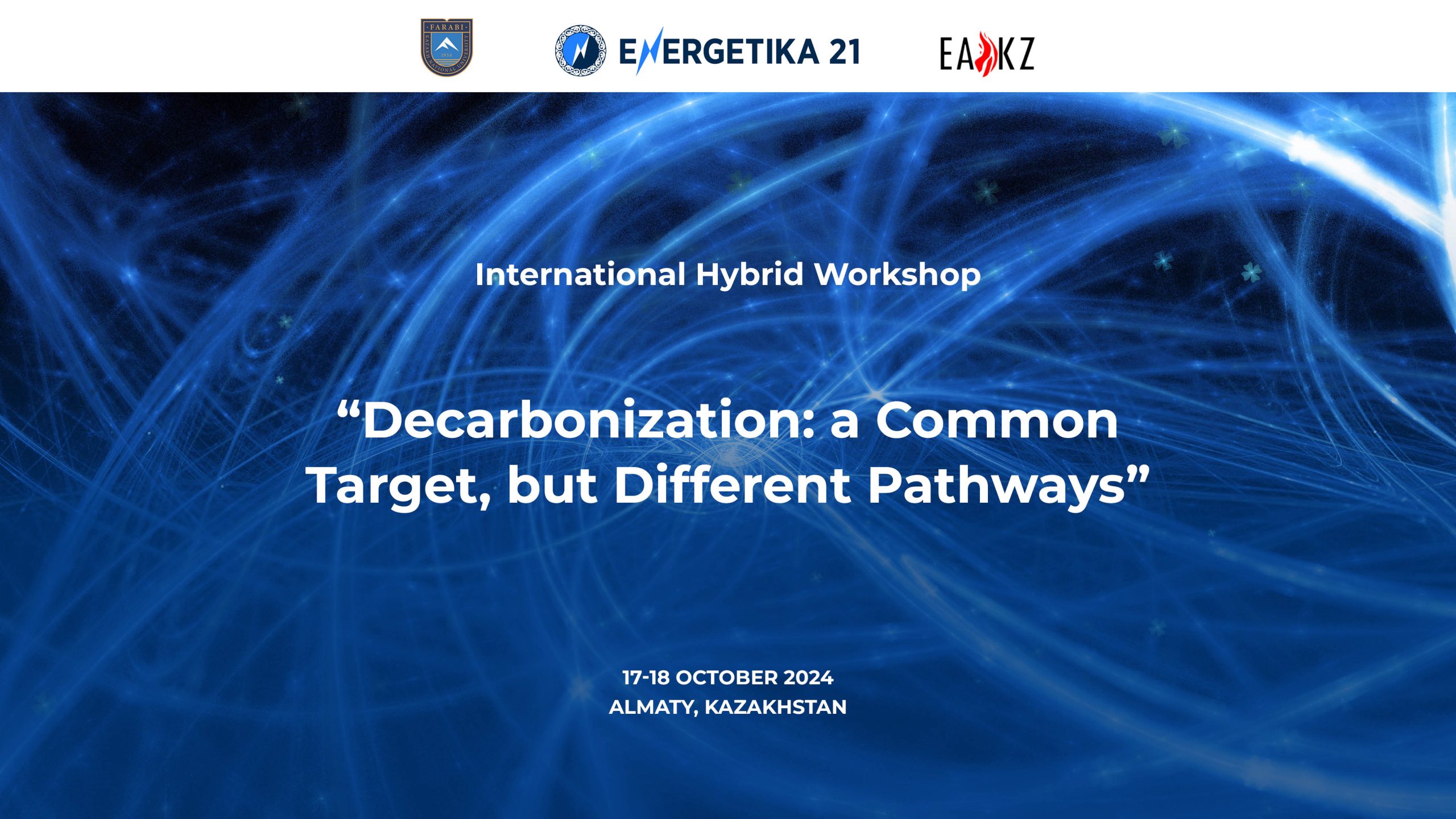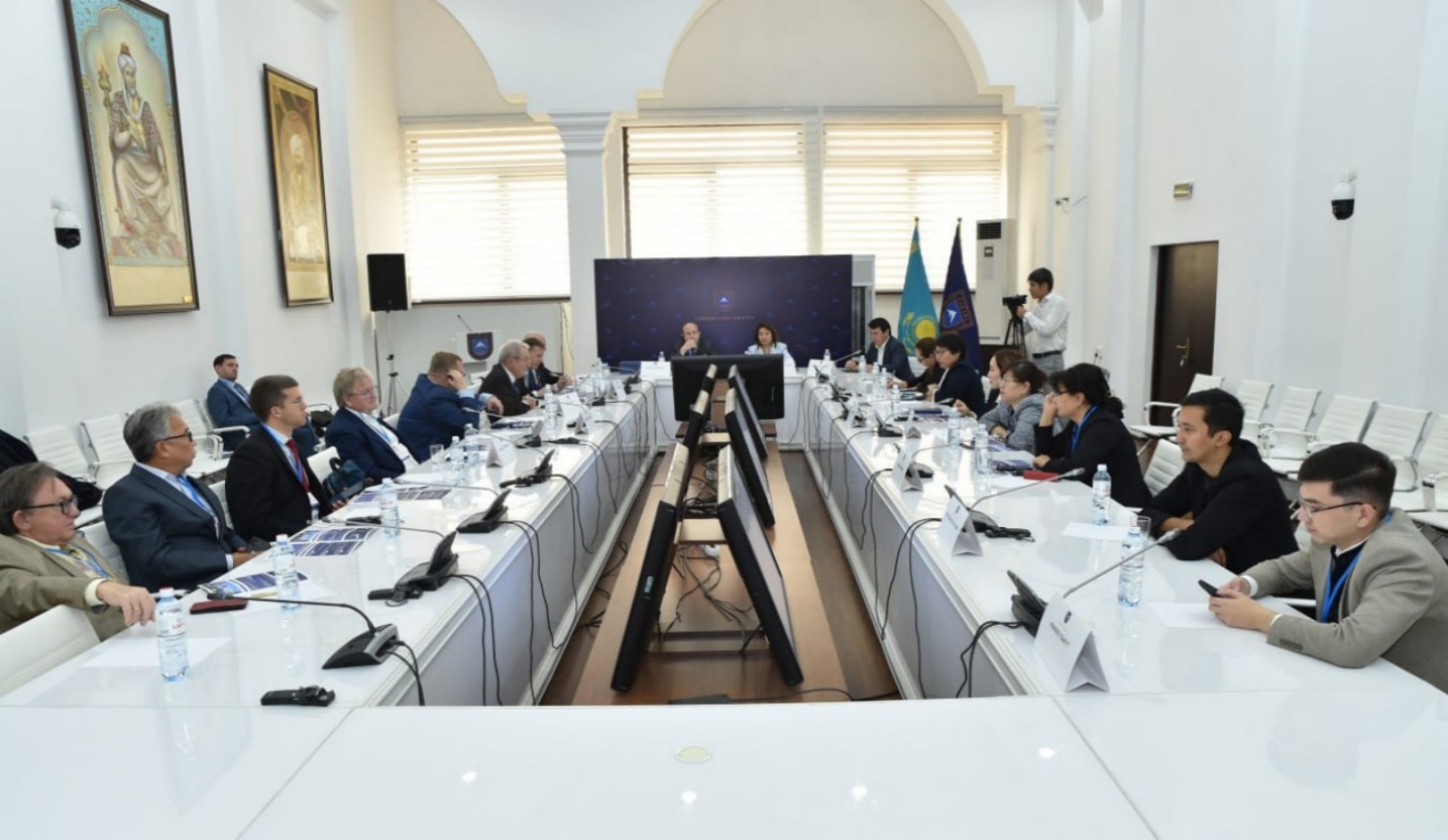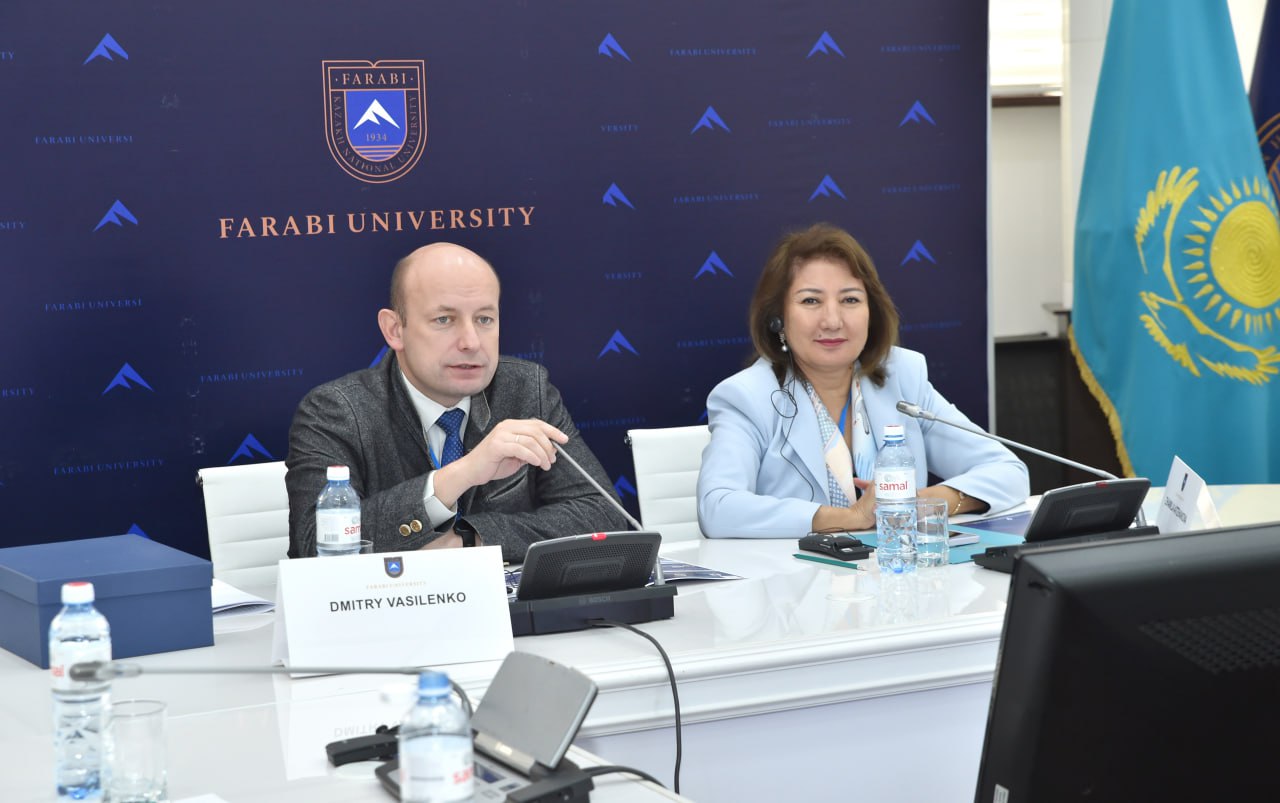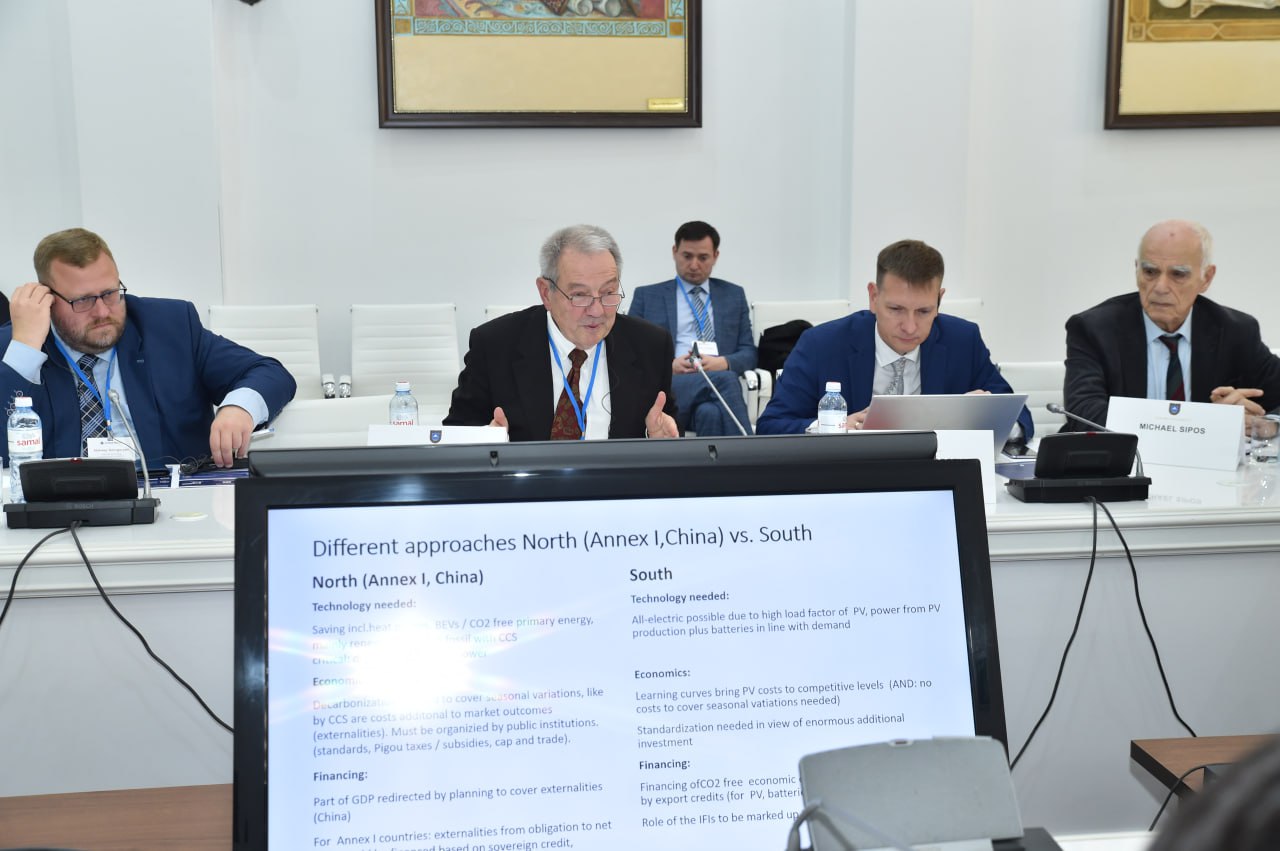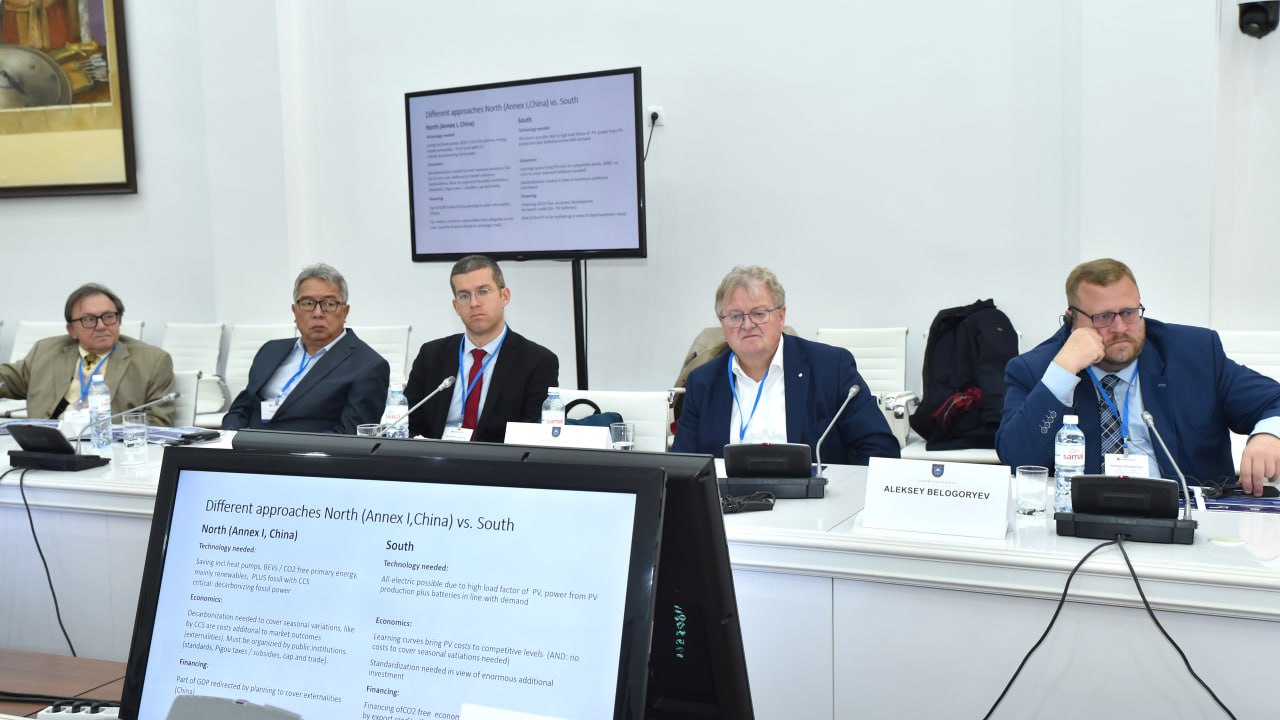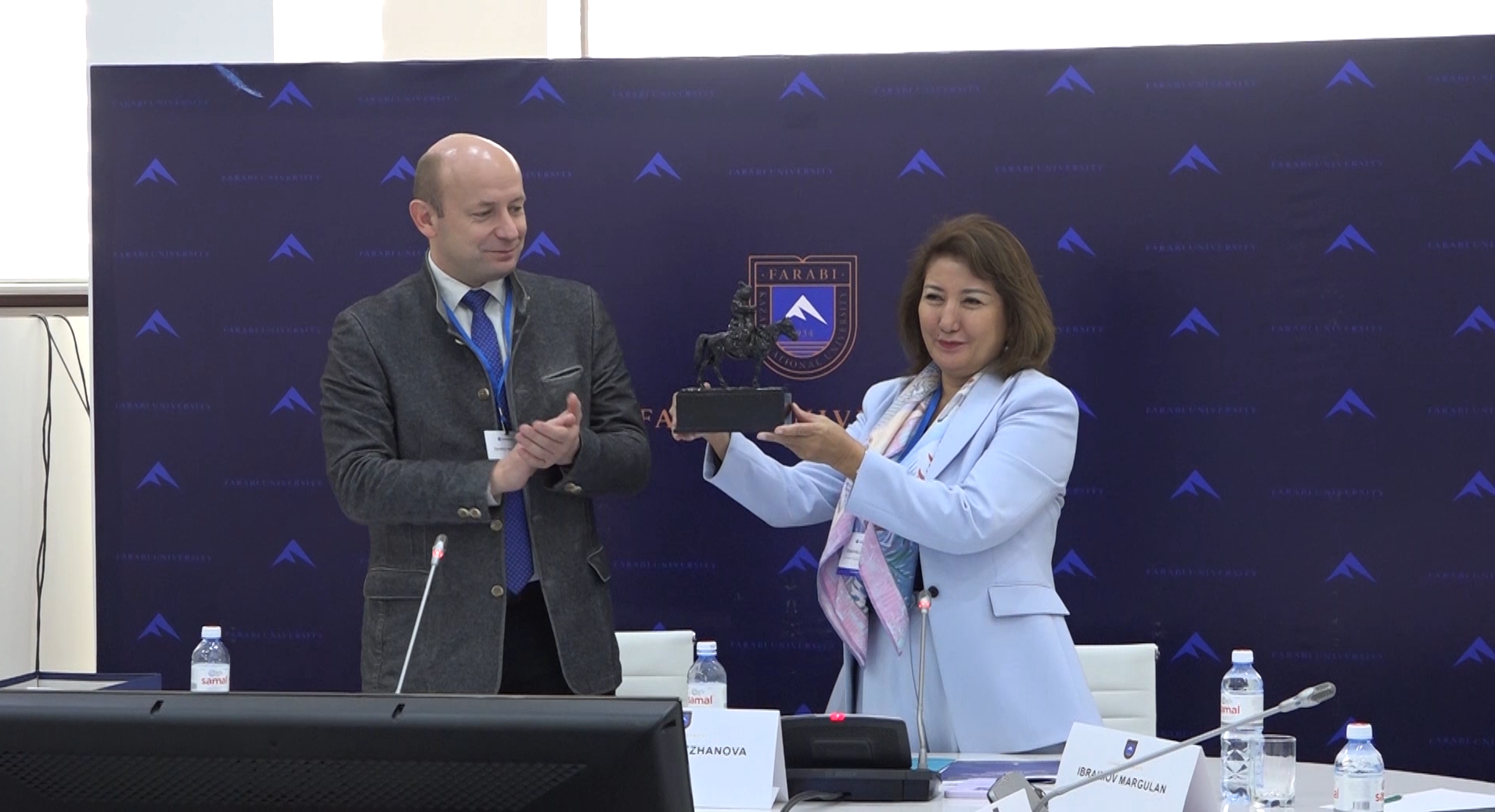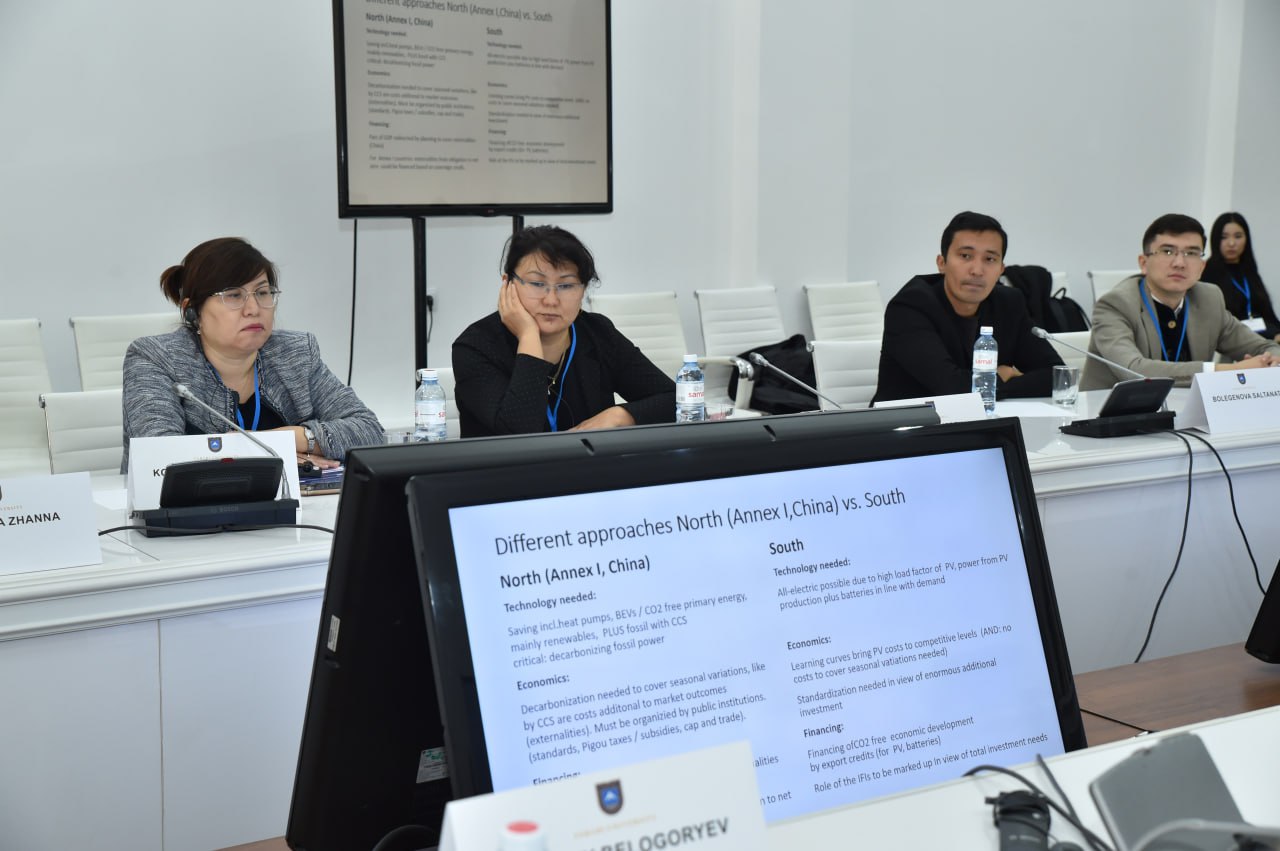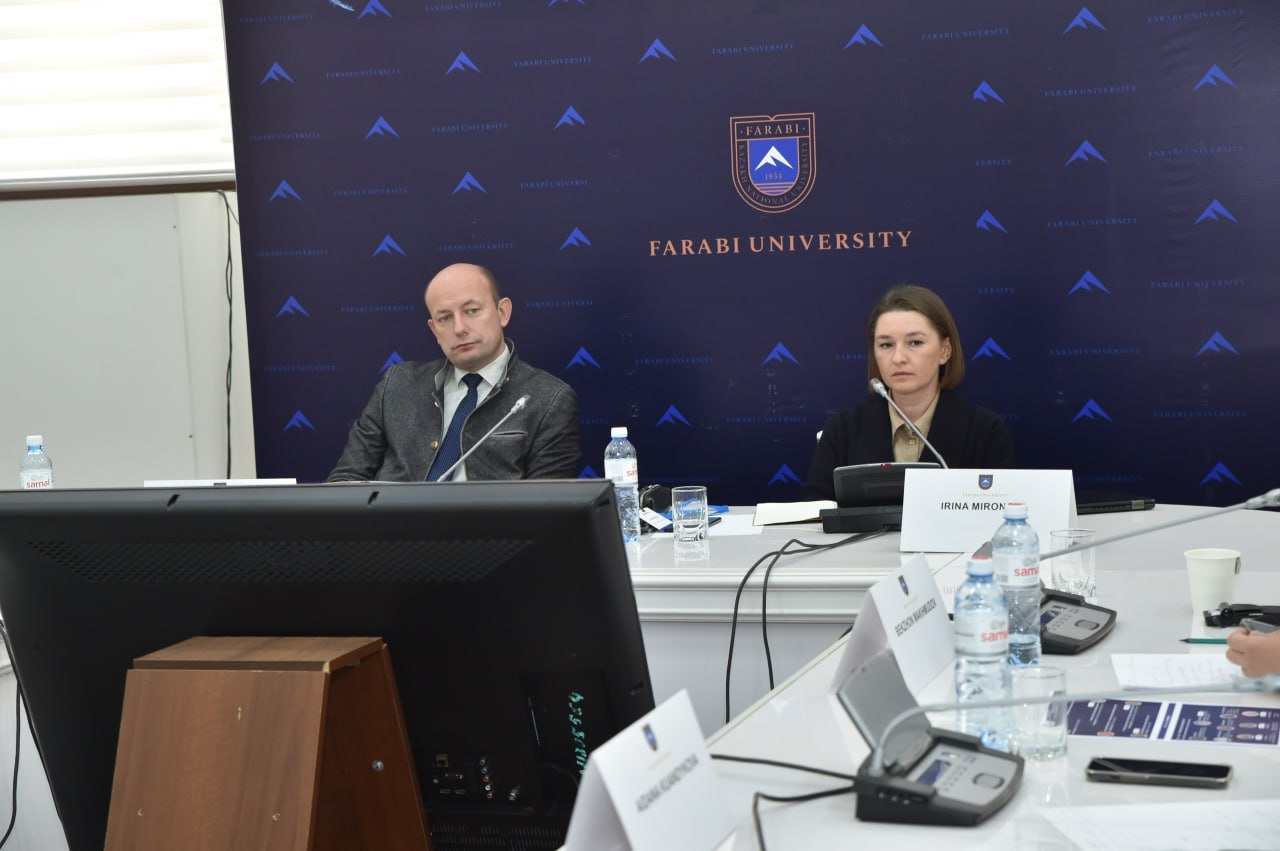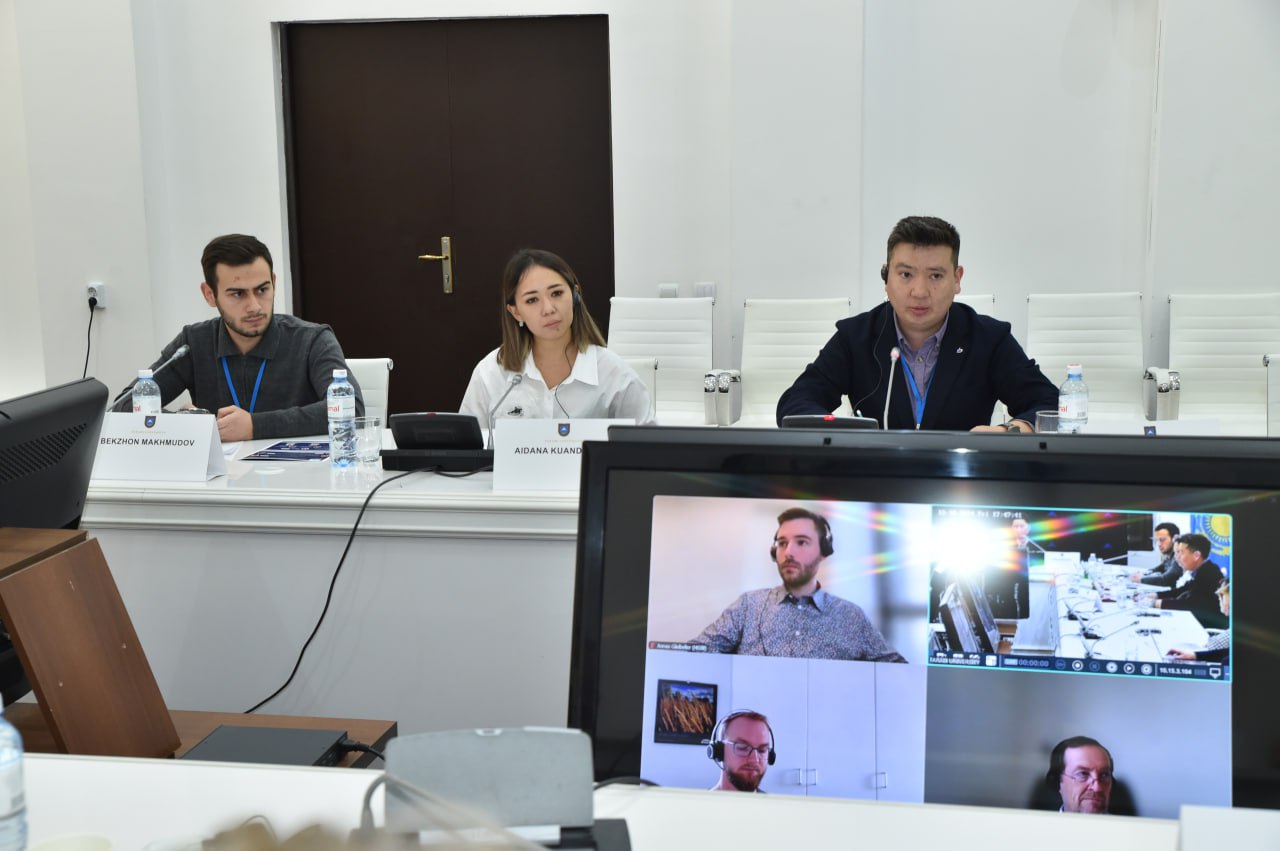The International Hybrid Workshop “Decarbonisation: a Common Target, but Different Pathways” was held by UNECON on 17-18 October 2024 at the premises of Al-Farabi Kazakh National University, Almaty, Kazakhstan and served as a preparatory platform for the International Scientific Conference «Energetika XXI: Economy, Policy, Ecology». The co-organizer of UNECON and Al-Farabi Kazakh National University was also “Energy Aspects of Kazakhstan” center. The aim of the workshop is to address strategies and ways to reduce carbon emmissions, which have become an important issue of sustainable development policies at both the national and international levels.
In the welcoming address the Minister of Energy of the Republic of Kazakhstan Almasadam Satkaliyev emphasized that “decarbonisation of our national economies has areas of common interest. With the benefit of experience, sustainable investment and modern technologies our countries can make a signifcant contribution to achieving net-zero, which Kazakhstan has commited to achieve by 2060. For this reason at the present time Kazakhstan is facing climate change challenge and GHG emission reduction, making steps on the way to hydrogen use. It is of paramount importance for Kazakhstan to indicate the place for hydrogen in the low-carbon development perspective by modelling various scenarios for the development of this industry. I hope that our existing ties of partnership will stregthen in the long term. Green technology and alternative energy sources implementation surely is the future for all states.”
The workshop was held in the format of three sessions and panel discussions, including young researchers discussion. In the first session “Pathways depending on development and geography” there were presented the views on meeting climate targets in the countries of Global North and South by Ralf Dickel (Independent expert, Germany; member of the Scientific Committee of the International conference “Energetika XXI”), in BRICS countries by Mikhail Sosin (Gazprombank), and in Central Asian countries by Aleksey Kobzev (Kazakh-German University).
Thanks to the hybrid format the experts from different countries could join the discussion, exchange the experience and opinions on key issues and focus on various approaches to decarbonisation within the second session: Fuad Humbatov, Ministry of Ecology and Natural Resources of the Republic of Azerbaijan (experience of Azerbaijan), Julian Marco Barbosa Shorto, Nuclear Engineering Center, Nuclear and Energy Research Institute (experience of Brazil), Vivek Nanoti, LT JSS — Priyadarshini Group of Institutions, PCE Welfare Foundation, Nagpur (experience of India), Aleksey Belogoryev, Institute for Energy and Finance Foundation (experience of Russia) and Igor Litvinyuk, United Nations Economic Commission for Europe. Detailed technology approaches were presented in the third session: grid integration of renewables, Michael Kranhold, 50Hertz Transmission GmbH, carbon dioxide removal, Ekaterina Grushevenko, The Skolkovo Institute of Science and Technology (Skoltech), and hybrid heating solutions, Jens Völler, Team Consult G.P.E. GmbH.
The final Panel discussion gathered young researchers from Almaty University of Power Engineering and Telecommunications, Al-Farabi Kazakh National University, Kazakh-German University, Saint Petersburg Polytechnic University, University of Potsdam and the Independent researcher from Bielefeld. Participants shared their views in the form of debate on the possibility of all-electric system and its consequences in the energy sector.
The International Hybrid Workshop “Decarbonisation: a Common Target, but Different Pathways” has become an important step towards sustainable energy future and paved the way for the future cooperation between different international and national organisations.

